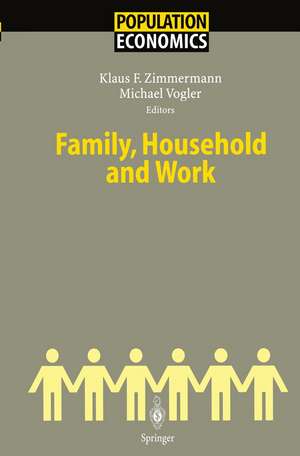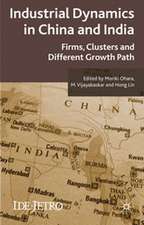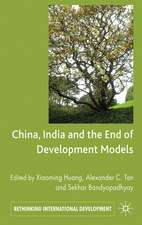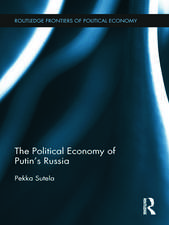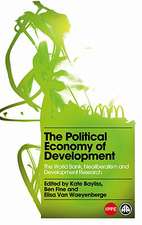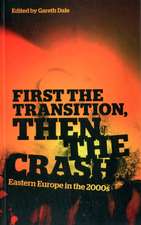Family, Household And Work: Population Economics
Editat de Klaus F. Zimmermann, Michael Vogleren Limba Engleză Paperback – 23 oct 2012
| Toate formatele și edițiile | Preț | Express |
|---|---|---|
| Paperback (1) | 647.59 lei 6-8 săpt. | |
| Springer Berlin, Heidelberg – 23 oct 2012 | 647.59 lei 6-8 săpt. | |
| Hardback (1) | 654.43 lei 6-8 săpt. | |
| Springer Berlin, Heidelberg – 13 iun 2003 | 654.43 lei 6-8 săpt. |
Din seria Population Economics
-
 Preț: 422.11 lei
Preț: 422.11 lei - 18%
 Preț: 954.45 lei
Preț: 954.45 lei - 15%
 Preț: 641.71 lei
Preț: 641.71 lei - 18%
 Preț: 952.40 lei
Preț: 952.40 lei - 18%
 Preț: 950.03 lei
Preț: 950.03 lei -
 Preț: 395.85 lei
Preț: 395.85 lei - 15%
 Preț: 635.47 lei
Preț: 635.47 lei - 15%
 Preț: 637.59 lei
Preț: 637.59 lei - 15%
 Preț: 649.39 lei
Preț: 649.39 lei -
 Preț: 384.31 lei
Preț: 384.31 lei - 15%
 Preț: 653.65 lei
Preț: 653.65 lei -
 Preț: 391.79 lei
Preț: 391.79 lei - 15%
 Preț: 641.85 lei
Preț: 641.85 lei - 15%
 Preț: 698.15 lei
Preț: 698.15 lei - 18%
 Preț: 785.24 lei
Preț: 785.24 lei - 18%
 Preț: 950.52 lei
Preț: 950.52 lei - 15%
 Preț: 637.59 lei
Preț: 637.59 lei
Preț: 647.59 lei
Preț vechi: 761.87 lei
-15% Nou
Puncte Express: 971
Preț estimativ în valută:
123.91€ • 129.73$ • 102.53£
123.91€ • 129.73$ • 102.53£
Carte tipărită la comandă
Livrare economică 05-19 aprilie
Preluare comenzi: 021 569.72.76
Specificații
ISBN-13: 9783642624391
ISBN-10: 3642624391
Pagini: 444
Ilustrații: XIV, 427 p.
Dimensiuni: 155 x 235 x 23 mm
Greutate: 0.62 kg
Ediția:Softcover reprint of the original 1st ed. 2003
Editura: Springer Berlin, Heidelberg
Colecția Springer
Seria Population Economics
Locul publicării:Berlin, Heidelberg, Germany
ISBN-10: 3642624391
Pagini: 444
Ilustrații: XIV, 427 p.
Dimensiuni: 155 x 235 x 23 mm
Greutate: 0.62 kg
Ediția:Softcover reprint of the original 1st ed. 2003
Editura: Springer Berlin, Heidelberg
Colecția Springer
Seria Population Economics
Locul publicării:Berlin, Heidelberg, Germany
Public țintă
ResearchCuprins
Time use and non-market work.- Timing, togetherness and time windfalls.- The allocation of time and goods in household activities: A test of separability.- On private incentives to acquire household production skills.- Estimating intrahousehold allocation in a collective model with household production.- The allocation and value of time assigned to housework and child-care: An analysis for Switzerland.- Who takes care of the children? The quantity-quality model revisited.- Household and family development.- Modelling household income dynamics.- Saving behaviour and earnings uncertainty: Evidence from the British Household Panel Survey.- Family structure and children’s achievements.- Childhood family structure and young adult behaviors.- Child development and family resources: Evidence from the second generation of the 1958 British birth cohort.- The decisions of Spanish youth: A cross-section study.- Group living decisions as youths transition to adulthood.- Transition to work and younger employees.- Residential location and youth unemployment: The economic geography of school-to-work transitions.- Transitions from employment among young Norwegian workers..- Parental disruption and the labour market performance of children when they reach adulthood.- Optimal age at motherhood. Theoretical and empirical considerations on postponement of maternity in Europe.- The effects of female employment status on the presence and number of children.- Job bust, baby bust?: Evidence from Spain.- Effect of childbearing on Filipino women’s work hours and earnings.
Caracteristici
Consists of the latest research results on resources management and development of families and households
